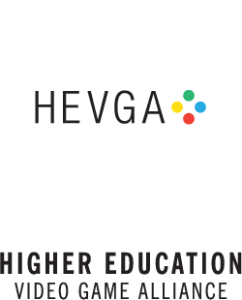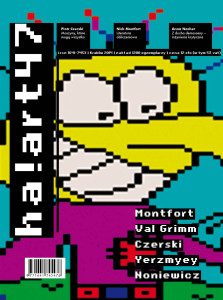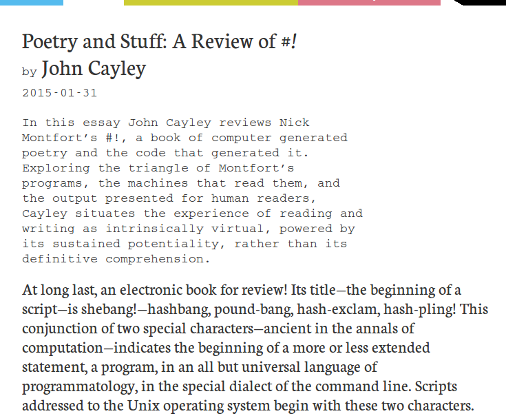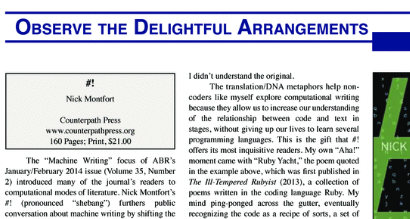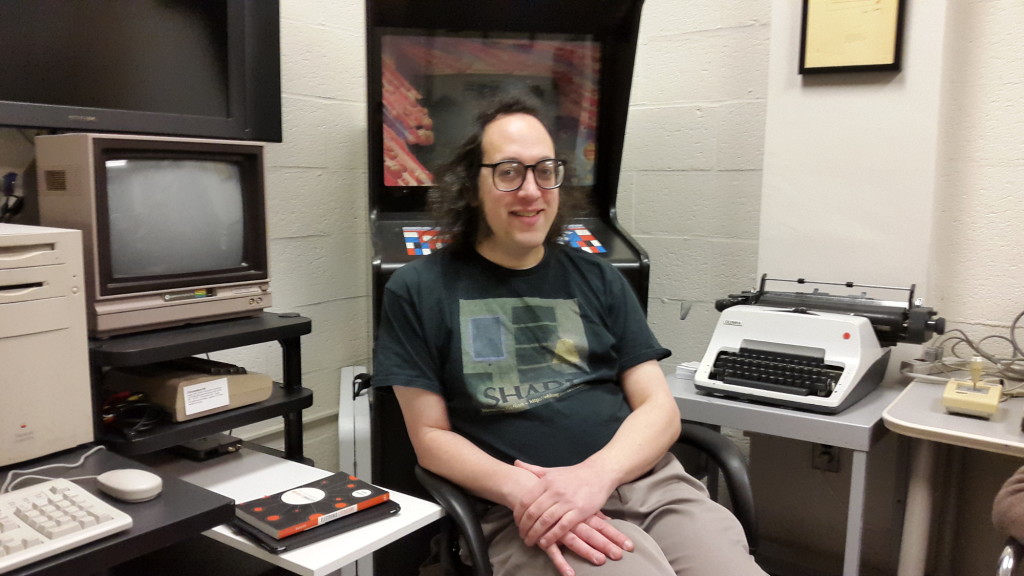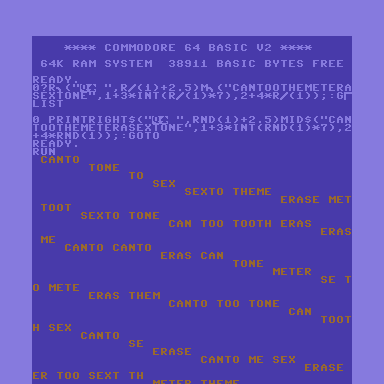My Five-Part Interruption
My both systematic and breezy presentation at Interrupt 3, phrased in the form of an interruption, began with a consideration of electronic literature’s “ends” and digital poetry’s “feet.” During the beginning of my presentation I played “Hexes,” a digital poem I wrote a few minutes before the session began. I went on to read every permuation of the phrase “SERVICE MY INTERRUPT FUCKFLOWERS,” using a technique famously employed by Brion Gysin on a text that includes a memorable compound word by Caroline Bergvall. I continued to read some hypothetical captions from “Feminist Ryan Gosling” image macros about Donna Haraway. I then read from “Use of Dust,” a new work that is an erasure of Alison Knowles and Janes Tenney’s “A House of Dust.” I concluded with this text:

